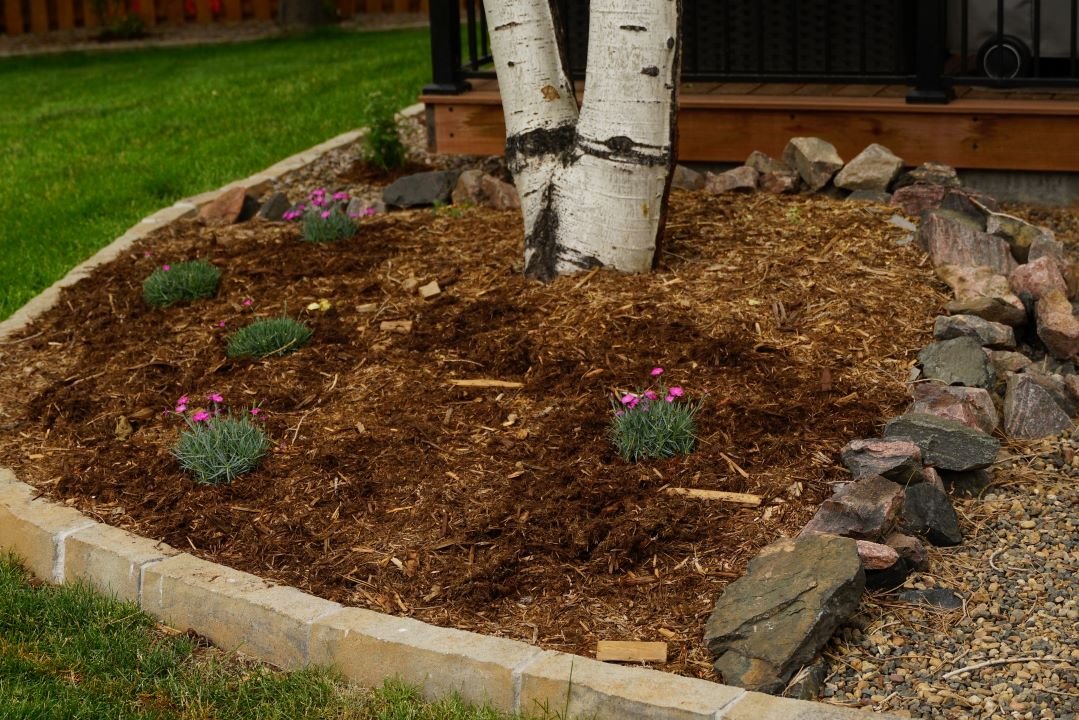What Are the Kinds of Mulch?
Although mulch gives your garden a complete look, its purpose extends much further than mere appearance. Mulch can help enhance the quality of soil and perform as an excellent weed suppressant. And not all mulches are created equal - the right kind will make the difference between a great yard and an amazing one. Let us explore each of the common types of mulch together with their individual characteristics in this post. Whether you are a homeowner gardener or want professional mulching services in Denver, it will be helpful to know these options so you can decide accordingly on what suits your landscaping needs best.
What Is Mulch?
Mulch is any material spread or laid over the surface of the soil as a covering. Its primary purpose is to retain moisture, improve the fertility and health of the soil, reduce weed growth, and enhance the visual appeal of the area. Here are the main types of mulch you might consider.
Organic Mulch
Wood Chips and Bark
Wood chips and bark are popular choices for many gardeners. They are excellent at retaining moisture and adding nutrients to the soil as they decompose. Ideal for landscaping in Denver, these materials provide a clean and natural look to gardens and pathways.
Grass Clippings
Recycling grass clippings as mulch is a cost-effective way to nourish your garden. They break down quickly and provide a quick nutrient boost to the soil. However, be mindful not to apply them too thickly, as this can lead to matting and poor air circulation.
Straw and Hay
Straw and hay are lightweight mulch options that work well for vegetable gardens. They are effective in controlling weeds and improving soil moisture levels. Ensure that the straw or hay is free from weed seeds to avoid unwanted plants in your garden.
Inorganic Mulch
Gravel and Stones
Gravel and stones are ideal for areas that require good drainage. They work well in pathways and around plants that do not need a lot of moisture. While they do not decompose, they do provide long-term coverage and can help reduce soil erosion.
Plastic Mulch
Plastic mulch is often used in commercial gardening but can be beneficial in home gardens as well. It is excellent for retaining soil moisture and controlling weeds. However, it does not add nutrients to the soil and can be less visually appealing than organic options.
Living Mulch
Cover Crops
Cover crops, such as clover or vetch, act as living mulch. They grow alongside your plants, helping to suppress weeds, retain soil moisture, and add nutrients to the soil as they decompose. They are a sustainable choice for those looking to improve soil health over time.
Elevate Your Garden: The Art of Mulch Selection for Optimal Growth
Choosing a good mulch can make all the differences in health and appearance of a garden. Organic mulches range from wood chips to grass clippings. Among the inorganic options are gravel and plastic. Each type has its benefit; therefore, settle for the best one for your garden considering its needs and climate in your locality, if possible, seeking advice from local experts. For example, one could be looking to optimize their garden and professional mulching services in Denver would give the best possible outcome. Know the different kinds of mulch that will make it easy for you to create a thriving beautiful garden space.
Ready to transform your garden into a lush oasis? Contact Highlands Landscaping today! Our expert team will help you select the perfect mulch to enhance soil health and beautify your outdoor space. Let's create the garden of your dreams together!

